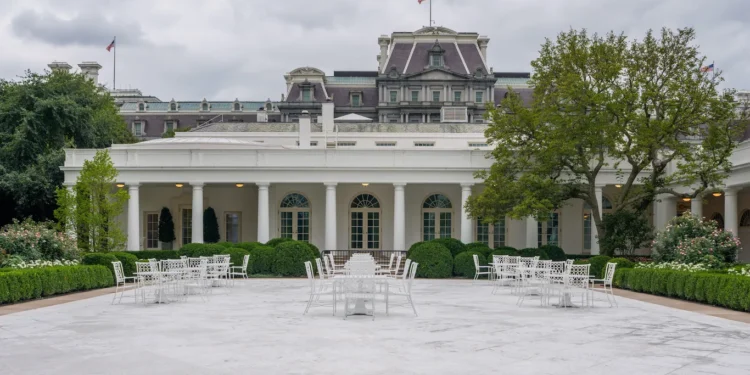President Donald Trump will host executives from major technology companies at a White House dinner Thursday evening, assembling leaders from artificial intelligence and tech firms as his administration seeks to shape industry relationships.
The guest list includes Microsoft co-founder Bill Gates, Apple CEO Tim Cook, Meta CEO Mark Zuckerberg, and approximately a dozen other executives representing the sector’s most influential companies. The gathering signals Trump’s effort to engage directly with technology leaders on policy priorities and regulatory approaches.
Notably absent from the dinner is Elon Musk, formerly a close Trump ally whom the president initially tasked with leading the Department of Government Efficiency. The exclusion follows a public dispute between Trump and Musk that emerged earlier this year, marking a significant shift in their previously collaborative relationship.
The dinner will take place in the Rose Garden, which Trump recently renovated by paving over the grassy lawn and installing tables, chairs, and umbrellas resembling the outdoor setup at his Mar-a-Lago club. White House spokesman Davis Ingle described the modified space as “the hottest place to be in Washington, or perhaps the world.”
The event coincides with a meeting of the White House’s newly established Artificial Intelligence Education task force, which First Lady Melania Trump will chair. She framed AI development in parental terms, stating: “During this primitive stage, it is our duty to treat AI as we would our own children, empowering, but with watchful guidance.”
Several dinner attendees are expected to participate in the task force meeting, which aims to develop AI education initiatives for American students. The dual events suggest the administration views technology education and industry engagement as interconnected priorities.
The comprehensive guest list includes Google founder Sergey Brin and CEO Sundar Pichai, Microsoft CEO Satya Nadella, OpenAI CEO Sam Altman and founder Greg Brockman, Oracle CEO Safra Catz, Blue Origin CEO David Limp, and several other technology executives representing companies spanning traditional tech, artificial intelligence, and aerospace sectors.
One attendee, Shift4 Payments CEO Jared Isaacman, represents a particularly complex relationship with the administration. Trump initially nominated Isaacman to lead NASA before revoking the nomination around the time of his dispute with Musk. Trump subsequently called Isaacman “totally a Democrat,” suggesting political considerations influence his technology sector relationships.
The dinner occurs as the technology industry faces increasing regulatory scrutiny and policy uncertainty. From artificial intelligence governance to data privacy regulations, tech companies seek clarity on federal approaches that could significantly impact their operations and strategic planning.
The gathering also reflects Trump’s transactional approach to business relationships, where personal dynamics and political loyalty appear to influence access and engagement opportunities. The inclusion of executives who have sometimes criticised the administration alongside the exclusion of Musk illustrates the fluid nature of these relationships.
For the technology sector, the event provides direct access to administration officials whilst raising questions about how policy decisions may be influenced by personal relationships and private conversations rather than transparent regulatory processes.
The Rose Garden renovation itself symbolises Trump’s preference for familiar environments and his tendency to reshape traditional institutions to match his personal preferences. The Mar-a-Lago-style setup suggests he views the White House as an extension of his business empire rather than a neutral governmental space.
Whether these high-profile engagements translate into coherent technology policies remains uncertain. The administration’s approach to AI education, regulatory frameworks, and industry oversight will likely depend more on broader political considerations than on insights gained from individual dinner conversations with technology leaders.







